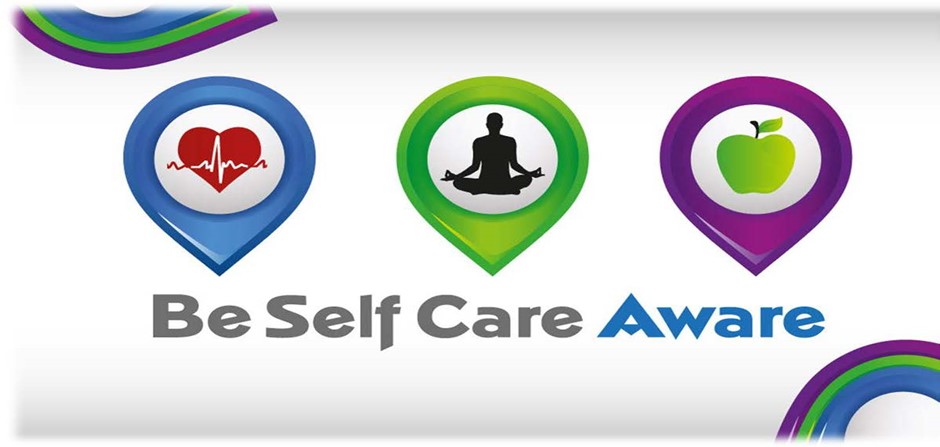Hello fellow colleagues, co-workers and friends welcome to the second in our series of weekly well-being guides designed to help support you (and offer some tips) as we all continue to navigate the shockwaves of the Covid-19 virus together. The reason we decided to create this guide in a weekly format was because we believe that fundamental changes to our lives, and new unsettling experiences like the one we are all going through, are an ever changing journey. Journeys can be a lot like a game of snakes and ladders, there will be times where we shoot forward and up a ladder and times where we find ourselves sliding back down a snake. Our initial idea was to write a brief guide, but we would like to provide some explanation to the tips we offer, so our apologies for it being longer than anticipated. Please feel free to cherry-pick the headings that are of personal interest, or perhaps read in chunks – we do understand it is a lot to digest right now!
I can’t believe we have all been navigating Covid-19 for as long as we have now. Time is maybe starting to feel distorted (and a little surreal) after adjusting somewhat to the immediate circumstances which felt like they knocked us off our feet. We were thrown into working from home, physically separated from others, our movement restricted by the threat of a deadly unseen enemy. In the earlier days it seemed there was a panic/survival response with fear being played out through buying toilet rolls and food; others maybe sought to stabilise by galvanising into setting up community response teams, tackling household projects, and even writing well-being guides! We are now perhaps a bit further down the line, knowing that food and toilet rolls will still be available, learning to reset our lives and work and relate in different ways, yet still mindfully aware of the ever sinister threat of this lethal virus.
Last week we started by offering tips on how to initially adjust, and concentrated on our physical well-being. This week comes from more of a psychological viewpoint. As therapists we believe things are best tackled in a manageable sequence, and hence our rationale for approaching things this way. For example, it can be hard to give attention to emotional and psychological issues if we have not first settled and balanced our physical well-being. A simple illustration to demonstrate this is that
when our sleep and diets are out of synch it is harder to regulate our emotions, this in turn makes life feel overwhelming and then our problems can quickly seem insurmountable.
As we write these guides we would also like to acknowledge that we have only included a few of many ideas that could have been introduced. We are a group of therapists (with different professional and personal experiences) trying to give some helpful points for thought, but let’s face it asking therapists to agree on what to include in a well-being guide is like asking a class of five years olds to agree which pup in Paw-patrol is the best (it’s Marshall all day long) it’s never going to be easy or without long debates. If, in the future, we find that people would like more on any area which we have touched on we would be happy to expand, so please do let us know what your thoughts and needs are. We hope that you do find some of the points/tips in this guide helpful, or just useful reminders for you. Remember there are no right or wrong places to be on your journey so please use whatever strategies, tips and guidance that suits where you are at any given time.

PSYCHOLOGICAL WELL-BEING.
- Take time for yourself: During these stressful times it can be easy to lose track of our own needs and for things to get out of balance. It is important to take time for you, to reflect on your day and relax; this can be done in small bursts, and/or for longer periods of time. The bottle I mentioned last week gets full constantly, and the best way to empty it and ready ourselves for a new day is to take time to do something we enjoy. Make sure this is scheduled into your day! Downtime is about caring for yourself, in psychological terms this is referred to as self-care. It is not ‘selfish’ to look after yourself and your needs, but actually is fundamental to our well-being. In order to be available, supportive, patient, and be able to offer kindness to others we have to primarily start with making sure we are okay ourselves – so that KINDNESS starts with you! Have a bath, potter in your garden, watch your favourite Netflix/Amazon/Sky series, read a book…. do whatever helps you feel relaxed so that you are able to switch off and de-stress.
- Limit News exposure: Social media, misinformation, fake news and everyday reports often communicate the negative aspects of peoples’ lives and the world around us; this negative bias can cause us to worry about things which are often out of our control, or become anxious about things which are simply not even true! The amygdala is the oldest part of the brain and is responsible for regulating and processing memory, decision-making, motivation, and emotional reactions in relation to survival. Over stimulation by watching and/or reading news reports causes a reaction by the amygdala called threat-monitoring. Your brain literally goes into survival mode and starts looking for threat, and if it is looking for threat guess what it finds, THREAT! The amygdala is primitive and illogical so dismisses anything it deems to not be related to threat as irrelevant, therefore causing a very one-sided view of what is going on around us. However, I am aware that with the ever-changing circumstances we all need to keep up to date with current events. But over exposure to news reports does not keep you prepared, it causes anxiety in the form of worry, depression in the form of dwelling, and overwhelms the amygdala. Schedule in limited small regular news reports, I watch the 6 o’clock News for 30 mins and find this keeps me up to date with all I need to know.
- Take time to talk: As social beings I cannot stress enough how important it is to talk to others and feel connected. We develop strategies from an early age to counter stress through social awareness and combined understanding; we seek to put issues, worries and perceptions into perspective through communicating them to others and feeling understood. So talking to people whether its small talk, having a moan, checking in on loved ones, and/or staying in contact with colleagues is vital to well-being. In this modern world we are blessed by the fact we can “talk”, and I use the word “talk” to cover many forms of communication that involve conversing with somebody else, via many different mediums. So whether it is telling somebody we care with a picture, communicating our mood with happy or sad video clips, or through images like emojis do communicate away. Please do remember though that any kind of communication can come with a caveat as in a crisis emotions can be in flux or a heightened state, and so people may misinterpret the meaning in what is being communicated, and/or may overreact. So try to remember to aim to communicate and share thoughtfully, and be prepared/mindful of any potential of miscommunication. Miscommunication is the primary reason for relationship break downs and problems such as anger between people. If you are trying to communicate something emotive or important, try to be clear in your communication to minimise any confusion as this can help prevent escalation of issues that may be more contentious during this confinement.
- Taking time out: When communicating/talking, if you do find things are starting to feel out of hand – whether this is at home with a partner, with uncooperative bored children, or even over a passionate Facebook thread, do take time out before responding. Giving yourself between 10-20 minutes ‘breathing space’ can help give you time to settle, re-evaluate and feel calmer. Remember that strong emotions can come like a wave, they peak and eventually crash losing their intensity; in this ‘ebbing’ phase we are more able to think rather than react. Our capacity to repair relationships, and even consider how we may have contributed to any tensions, is enhanced when we can think more logically. Be mindful that people may also be oscillating between emotions, potentially contributing to any missteps in the communication dance. For example, one person might be feeling more proactive and positive, whereas their partner might be feeling afraid and angry – which might make communication a little fraught! Remember these are unchartered waters and there are no right or wrong way to be at the moment; placing ourselves in the other person’s shoes is a skill we are all having to put into practice as best we can at the moment!
- The importance of boundaries: You may also want to give some thought about who you are communicating with, and what is shared with whom. I’m sure we all have people in our lives that just seem to rub us up the wrong way, or seem like they twist or misunderstand everything we say. Just as it is important to increase our communication with some people, it may be just as important to limit and boundary our communication with certain others. Relationship counsellors often speak about how as human beings we can either co-regulate or dysregulate one another, and so who we choose to seek support from is crucial as we need to feel received, understood, and have our feelings validated. Healthy communication can help us to alleviate fear putting our minds at ease. It can give us peace of mind by providing us vital missing information, and lastly, but most importantly human contact can stimulate the reward pathways to the brain that makes us feel happy, calm and connected. During this time of isolation talk to others in whichever way feels most comfortable to you. And remember this doesn’t have to be someone you know, there are many organisations and therapists willing to offer support during this time (please see some links at the end for professional bodies of registered therapists).
- Noticing your inner experiences: Listen to your thoughts, judgements, beliefs, attitudes and feelings as they are communicating something important to you. Unconscious parts of the brain do not communicate in a logical rational way, they use emotions, moods, attitudes and thoughts to encourage us to behave or respond in a particular way. For example, getting angry and having thoughts such as “my wife/husband/child/co-worker/friend/boss and so on, are deliberately making life harder for me”, can be the brain’s way of communicating to you that you are overly stressed can’t take on anymore and need to look after yourself before doing anything else. Listening to our inner experiences can give us the ability to pre-empt possible conflict and upset, helping us to be less overwhelmed. It can also help us know when to say “NO” to extra responsibilities and take time out for ourselves. Your inner self is not looking to make life harder for you, it’s trying to make life easier. Life gets harder when we forget to listen to ourselves, because just like the rest of us, when our inner selves feel they are not being listened to they start to SHOUT LOUDER! Our emotions get more extreme and our moods more severe.
- Talking to yourself positively: Another tip is to monitor is your internal dialogue. Therapists refer to this as ‘self-talk,’ but in essence these are just the words we say to ourselves in our minds (though they can be spoken out loud too). We all have the ability to be really hard and harsh on ourselves at time, more so when we are stressed. We can judge ourselves as failing when we perceive that others that seem to be coping much better than we are, or can feel bad for being envious about all those ‘marvellous’ DIY projects being posted on social media (even though we know that these are not necessarily an accurate reflection as people tend to share the best version of themselves on social media rather than their ‘messy’ selves). Remember that we all deal with things differently and telling yourself that you are not managing to do what other people are doing is not kind, nor is it helpful. Focus on what you have managed to achieve daily,
‘pat yourself on the back’ for those small tasks/goals that you have achieved – tell yourself ‘well done,’ and cut yourself some slack for those which haven’t got done; they will eventually or maybe not at all! Prioritise whenever you can and allow yourself to go with what feels possible and manageable for you. Do reach out to your bosses and colleagues if work feels overwhelming and you are struggling – they are there to support you. Be kind to yourself – I cannot stress how important this SELF-COMPASSION is right now.
Well you have succeeded in reaching the end of another weekly guide – excellent! I will sign off until next week, when our topic will be emotional well-being. I wish you, your families and your loved ones well. Thank you for reading and keep on navigating!
Stay safe
HELPFUL LINKS:
The British Psychoanalytic Council (BPC) – https://www.bpc.org.uk/
UK Council for Psychotherapy (UKCP) – https://www.psychotherapy.org.uk/
British Association of Counsellors & Psychotherapists (BACP) https://www.bacp.co.uk/search/Therapists

Recent Blogs
-
January 11, 2022
Week 4: Tips for Coping with isolation and working from home.
-
January 11, 2022
Week 3: Tips for Coping with isolation and working from home.
-
January 11, 2022
Week 2: Tips for Coping with isolation and working from home.






